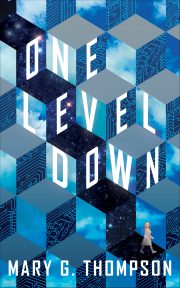Good for Your Career? Evaluating Events for Writers
by Catherine Lundoff
 “You should go to this – it’ll be good for your career” is a phrase that you’ll hear more than once as you start getting published. The phrase gets applied to conventions, conferences, writing workshops, book festivals and classes, just to name a few things. The “good for your career part” can refer to networking opportunities, the chance to meet editors and agents, some opportunity to gain new readership like doing a reading or being on a panel, or honing your craft.
“You should go to this – it’ll be good for your career” is a phrase that you’ll hear more than once as you start getting published. The phrase gets applied to conventions, conferences, writing workshops, book festivals and classes, just to name a few things. The “good for your career part” can refer to networking opportunities, the chance to meet editors and agents, some opportunity to gain new readership like doing a reading or being on a panel, or honing your craft.
What it may mean to you as a writer will vary based on where you’re at with your career and what’s feasible for you. A beginning writer hoping to do some networking and maybe get a reading at a con is at a very different place than a mid-career writer looking for a new agent and their next contract or an indie author looking to break through to the next level of visibility. Networking ability, access, how the event is set up, your goals, all these and more shape what you can get from an event that may or may not really be career advancing.
In my own case, I run a small publishing company as well as working as a writer and editor for projects for other publishers in addition to my day job. My time, energy and money are all quite finite, but I manage 5-7 large events a year, including book festivals and conventions. I consider things that don’t cost money upfront but center my writing or publishing, like interviews, guest blog posts, local bookstore readings, etc. to be automatically “good for my career” so I’m going to focus on how I assess the opportunities that involve significant costs here.
The first thing I always consider before adding an event to my schedule: Can I afford it? Financial stress can make even the most fun event pretty unpleasant. Even if you have books to sell, those sales generally won’t cover the cost of travel, hotel, tables, and stock, let alone your time, so you have to consider what’s realistic for you and what else you can get from attending. Factor in sharing rooms, book tables and shared travel too, if those are options to make a trip more feasible.
And, of course, events and travel also have an energy cost. This increases if you have one or more disabilities, have to travel internationally or over other long distances and/or your schedule and plans at the event itself. Be sure and take these into consideration when evaluating “cost” and pad a bit for emergencies, especially with travel. Try to do some research when looking at new-to-you events. Nothing is one size fits all, but asking questions and reading people’s review posts can be very helpful for initial screening.
Once those are addressed, the following is how I evaluate whether or not an event is in fact, “good for my career,” either now or in the future. My friends and I call this “Catherine’s Magical Triangle of Event Evaluation,” but it can just as easily be thought of like a checklist:
1. Can I sell books there?
2. Can I do some networking?
3. Can I have fun?
Another way to look at #1: can I discover new readers or get my book into the hands of existing readers if I attend this event as a writer or publisher? Book sales might be direct from an autographing table or through a bookstore in a dealer’s room. Or I might be able to do a reading and hand out promotional materials to get attendees to buy my books elsewhere. If I’m attending as a publisher, then it’s about direct sales, mailing list signups and raising my press’s profile. If I’m attending as an author, then building my readership, accompanied by fewer sales, is often enough.
#2. For me, “networking” means that I can meet people: readers, writers, other publishers, book reviewers, book bloggers, and podcasters. I might get invited to future events or to submit work or otherwise collaborate. It might well mean something different for you. Ask yourself what you hope to get from this event. Define that up front and consider how outgoing you are, whether or not you’ve been accepted for programming and what groups and activities you’re involved in that will be taking place there. Are you going with friends or a writing group? Are you volunteering at a SFWA table or at the event itself? Are you meeting people you know from elsewhere? All of these things can make networking easier. Just remember that you’re there to meet new people too.
#3 A fun event for me means that I have time to wander around, go to panels and the dealer’s room, check out art show and meet up with people I want to see. This is more important than it sounds. Events are work, even if you’re very gregarious and great at networking and sales. Getting in some fun time keeps you from burning out. It also helps you get some perspective on how things went and what did or didn’t work when you consider whether or not to come back. Balancing fun and work time makes you more effective in the long run.
Make a checklist of your own for your upcoming events. Keep your goals general, but doable, such as “I want to apply for a panel” or “I want to go to a pitch session.” Set yourself up for success as well as incremental growth. But go easy on yourself if you have to pass on an event that sounds great or if something doesn’t meet your expectations or goes wrong. Your career is a journey as much as it is a destination and remembering this is a big part of what’s “good for your career.”
•••
Catherine Lundoff is an award-winning writer, editor, and publisher based in Minneapolis, where she does arcane things with computers and lives with her wife and cats. Her recent stories have appeared or are forthcoming in Fireside Fiction, A Few More Winter Tales, the LHMP Podcast, Tales of the Unanticipated, Curious Fictions, The Cainite Conspiracies: A Vampire the Masquerade V20 Anthology, The Mammoth Book of Jack the Ripper Tales and The Mammoth Book of the Adventures of Professor Moriarty. Her books include Silver Moon, Out of This World: Queer Speculative Fiction Stories and, as editor, Scourge of the Seas of Time (and Space). She is the publisher at Queen of Swords Press and she goes to a lot of writing and publishing-related events.


